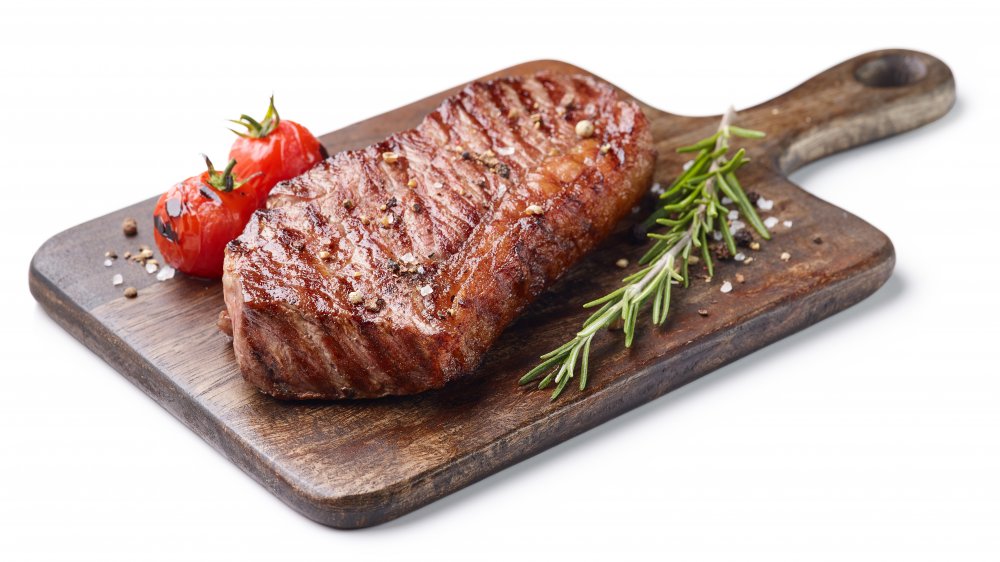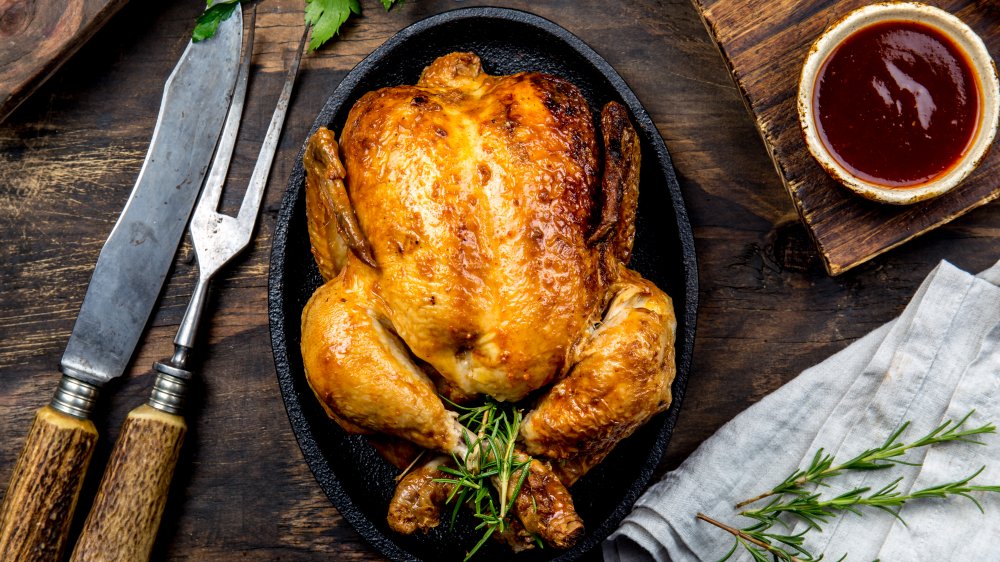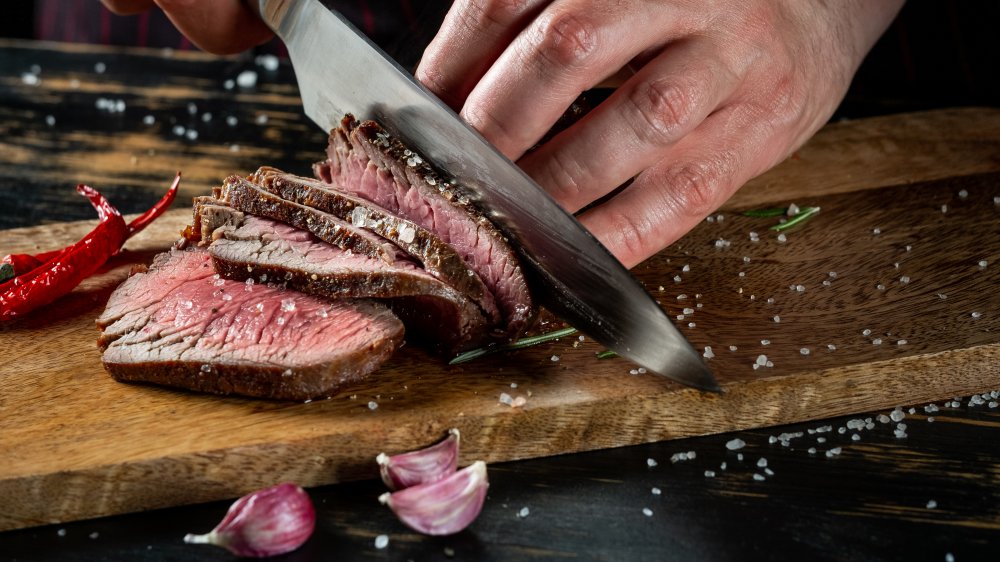The Real Reason It's So Important To Let Meat Rest
You're hungry. You've just cooked the pork or beef cut of your dreams. But before you get ready to dive into your steak, remember the adage about good things coming to all those who wait.
Most chefs say there is a world of difference between cutting into a steak or chicken immediately after it's come out of the oven and waiting a bit before you carve and serve. "When meat is hot, the juices are more liquid. When you cut into a very hot piece of meat, all of the liquid is going to come out. If you rest it, it allows everything to relax and redistribute the juices, which creates a more tender, juicier cut," chef Angie Mar tells Martha Stewart
Mar also says the key to getting your steak exactly the way you want it, is to take it off the heat a few minutes before it is actually ready because it continues to cook even while it is resting. The chef recommended taking a medium-rare steak off the grill at around 115 degrees Fahrenheit. An instant-read thermometer will help take the guesswork out of deciding when the meat is ready to go. Once off the grill, Mar says you should let the meat rest for half the time that it's cooked. So a rib-eye that needed 20 minutes to cook will need 10 minutes to rest.
The resting rule goes for roast fowl, too
The resting rules also apply for the times you're roasting a whole chicken, a dish which meat and poultry distributor Mark Sarrazin says is difficult to get right. "I've always thought the great mark of a chef is if they can roast a chicken. You cook a steak, it's the same thickness, it's pretty straightforward. It's always hard to get the thigh and dark meat cooked enough without drying out the breast. It's an interesting test for a chef," Sarrazin tells Thrillist.
To get your roast chicken or turkey as close to perfection as possible, California chef Claudette Zepeda-Wilkins suggests taking your roast fowl out of the oven as soon as its juices are clear, and then give it a rest. "You should rest all meat, but it's even more important with chicken. To avoid dried-out chicken, let the juices redistribute through the meat for 10 minutes or more," Zepeda-Wilkins tells Food52.
And if you're casting around for a resting time estimate, chef Daniel Norton recommends 10 minutes for a whole chicken and 25 for and a whole turkey (via Business Insider).
Some experts say there's no need to let roasted meats rest
"Meathead" Goldwyn, chef and author of Meathead: The Science of Great Barbecue and Grilling, offers a compelling argument against letting the meat rest before serving. He tells Epicurious that while many chefs advise you to let meat rest for a bit before serving, they leave out the part which says that the longer meat sits, the longer it also cooks. "You take a steak off at 130 [degrees Fahrenheit] and let it sit around and rest for 15 minutes, and then it's up to 135 or 140," Goldwyn says, meaning the steak goes from just right to overcooked in a quarter of an hour.
Meathead tested the difference between rested and unrested meat and found that only a teaspoon of juice is lost when you don't rest it. The juice gets "lost" on your plate, where you can easily find it. He thinks that instead of waiting, you should go right on and eat the steak so it's done and served exactly the way you want it. And if you're starving, we can't help but think that the man might have a very good point.


